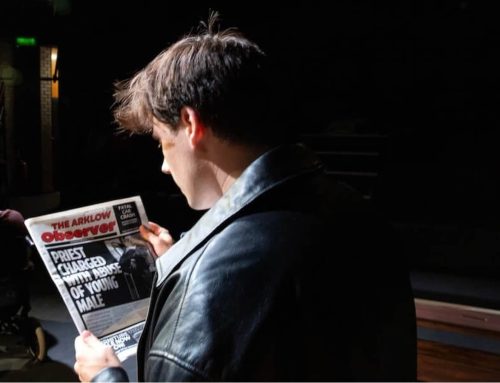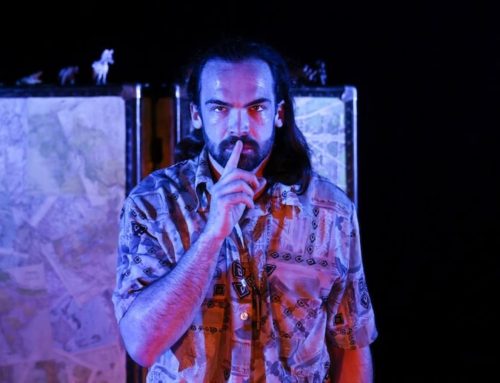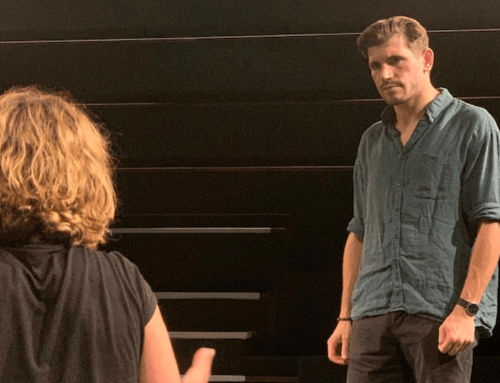Eliza Larkey’s The Making Of Frederick the Great certainly does not lack ambition. The story of how a queer 18th Prussian prince transforms a small militaristic nation into one of Europe’s great powers would test the limits of a full-on Netflix mini-series. The questions she poses – how did Frederick achieve greatness, what does it mean to be great, and at what cost is greatness achieved? – are the stuff of complex scholarly debate. Larkey does not quite manage to reconcile the history lesson with the dramatic form here, although there is something to savour in her attempt.
Part of the problem is the sheer complexity of Larkey’s narrative structure. The shows shift at dizzying pace between two alternative timelines. The first tracks Frederick’s (Jake O’Hare) youth, his growing love for literature, the arts, and for army captain Katte (Tommy Papaioannou), and his alienation from brutal father Frederick William (Phil McDermott). An attempt to flee Prussia for England sees Frederick arrested and imprisoned, Katte executed, and a caustic reconciliation between father and son.
The second timeline tracks the young Prince in the aftermath of his father’s death, the run-up to his coronation, and the beginnings of the military campaign that established the Kingdom of Prussia. Add into the mix a sub-plot on Frederick’s relationship with French philosopher Voltaire, and an extended riff on the Silesian Wars with neighbour Maria Theresa of Austria (Charlotte Kindred). This is heady stuff that requires an awful lot of extended exposition, sword fights, and signposting of the “today marks a historic day for Prussia” or “this is an innovative and complex military strategy” type.
Larkey clearly knows her history. For the rest of us the byzantine intricacies of Holy Roman Empire politics are interesting only up to a point (as indeed are Voltaire’s illegal investments in Saxon bonds). The details drag down the momentum, and you may find yourself shifting in your seat as the minutiae of Frederick’s battle techniques are laid bare.
The scenes of most dramatic interest here are those between a father, whose poisonous masculinity masks his own sexual ambiguity (“tall men are marvellous” he tells us with a lascivious licking of the lips), and a son who sets himself up in opposition to a parent only to end up with many of the same toxic characteristics. One wishes these scenes took more of the dramatic foreground.
Jake O’Hare has a rich, sonorous voice and makes for a charismatic Frederick. McDermott, clad in black like a cowboy movie villain, adds depth as the ghastly Frederick William.
Writer: Eliza Larkey
Directors: Eliza Larkey and Charlotte Kindred
More Recent Reviews
Milked. White Bear Theatre.
Written in 2013 and first seen a decade ago in a production at the Soho Theatre, Simon Longman’s slice [...]
Fresh Mountain Air. Drayton Arms Theatre.
Lana Del Rey’s ode to female unity and resilience, God Bless America And All the Beautiful Women In It, [...]
Rodney Black: Who Cares? It’s Working. Lion and Unicorn Theatre.
Rodney Black is a tacky small-time comedian with a venal manager and a taste for nasty misogynism. “I’m a [...]






